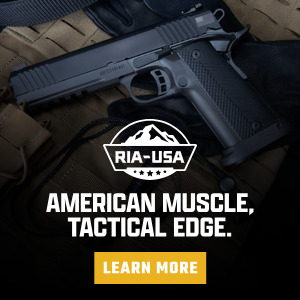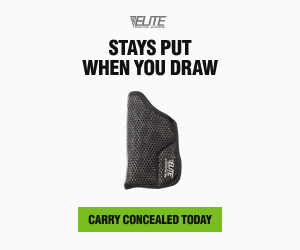Choosing a gun for concealed carry is a very important decision. Here are some ideas on carefully considering all pros and cons to select the best for you. READ MORE
SOURCE: Team Springfield, by Jason Burton
Somewhere, some time ago I read or was told “Everything in moderation, nothing in excess.” The statement and its underlying sentiment has been something that has stuck with me for years, even if I didn’t always apply this principle in real life. The basic concept I get from that statement is balance.
Everything can and should have balance and recently I found myself once again contemplating the idea of balance as it relates to carry guns.
USER PREFERENCE
To state the obvious: I am a die-hard 1911 user. For the better part of the last 20 years I have used a full-size 1911 in a concealed carry role. To also say it has been my main shooting / range gun would be appropriate. I’ve willingly given up a high-capacity magazine in exchange for the exceptional ergonomics of the slim yet full-length grip. Regardless of events or weather or circumstances, the 1911 has remained my constant companion. If I had to choose one principal attribute that has made carrying and concealing this large gun as easy as it has been, it would be the relative slenderness of the pistol.
PRACTICE MAKES PONDERING
After a recent range session with the Springfield Armory® 9mm RO® Elite Compact, I once more was reflecting on pistol performance, ergonomics, and employment in a concealed-carry mode. I contemplated the idea of balance as it relates to carry guns and our individual responsibility of personal defense.
So in this increasingly high-capacity world, could a single-stack gun be the perfect embodiment of balance and moderation and do they actually make the most sense when used in a concealed carry role?
PROS AND CONS
Here is where we start down the road towards balance and we should be practical in acknowledging that every carry gun is a compilation of trade offs in one form or another. Whether it is caliber, capacity, size, weight, ergonomics, trigger type, or other attribute — like most things in life you may have to give something up (or at least part of something) in order to gain something else.
My personal choice of the 1911 is a good example. In exchange for carrying a gun that is powerful yet easily concealable (provided by the relative slimness of the single-stack design), I give up capacity when compared to other platforms. Same comparison can apply to the size and weight. I choose a full-size pistol due to the positive performance and shooting aspects in exchange for carrying a relatively heavy gun. We can continue with these comparisons, but you get the point.
BEING YOUR OWN FIRST RESPONDER
By now, I’m sure someone is reading this and thinking, “No way a full-size 1911 is a balanced or moderate choice,” and in fairness, the commitment to carry an all-steel, full-sized 1911 may not be for everyone. However, if you consider what one truly needs in a personal defense gun, you may find that a single-stack gun of some type fits the bill.
Before you can define your needs you should begin with the understanding that you will likely be required to be your own first responder. What you bring with you as your own first responder will help give you options. Since you can’t save anyone if you don’t save yourself first, your equipment can become an important factor. The aforementioned balance of “pros and cons” comes into play here.
EVALUATE YOUR REALITY AND YOUR NEEDS
So what is needed in a personal defense pistol? All else being equal (reliability, accuracy standards, etc.), the gun should fulfill some basic requirements:
The gun needs to be easy to conceal, not just easy to carry. By that I mean the gun can’t just be small and light, although those things may help. I fully understand the ideas of proper holster selection and dressing around the gun, but the point is that the overall bulk and size element of the pistol should help to make it easy to dress around. The same principle applies to spare magazines as well.
The gun needs to be ergonomic. The “grip” and how the gun interfaces with the shooter is of tremendous importance and should be especially considered when using the pistol as a reactionary self-defense tool. This can be a pretty wide field because so much depends on shooter’s hand size and potentially overall physical size. There is such a thing as a gun that is too big or too small. I have found that when a gun doesn’t physically fit a shooter, it typically becomes less shootable for them and much worse when it is fired under stress.
The gun needs to hold enough ammo to solve your problem. Capacity is important primarily because it gives a shooter the ability to manipulate the pistol less. However, care should be taken not to over emphasize capacity in lieu of other basic requirements. Something to keep in mind is that in many fights, the last shot fired is the one that wins the fight. If the gun works well and is easy to shoot in a reaction mode, the first shot and the last shot might be the same, negating any remaining capacity. Even still I would strongly advocate carrying a spare magazine, if for no other reason than the magazine in the gun could malfunction. Along those lines, being easy to carry and conceal said spare magazine might make one more apt to bring it with them.
BE WARY OF EXCESS
There are extremes that can be born out of all of these factors, so try not to get bogged down in excesses of one direction or the other. What I mean is this, while a derringer is slim, easily carried and concealed, its inherent capacity limitations and required manual of arms don’t make it a viable option for personal defense. Keeping the aforementioned factors in mind and remembering moderation, an ergonomic and concealable gun that has a minimum capacity of 7 rounds — while being readily reloadable — is probably a choice that one can stake their life on.
For me, single-stack guns of all types have always embodied an ideal balance of moderation. My recent test drive with the Springfield Armory® RO® Elite Compact 9mm reminded me once more of the practical benefits of a slim, compact gun that is easy to handle and shoot.
With the continued popularity of the 1911 platform in general, as well as newer offerings such as the XD-S®, and XD-E™, and 911 .380, it would appear that slim is in!
So when it comes time for an honest evaluation of what you need for personal defense, ask yourself if a slim or single-stack gun fits that role? You might be surprised by the answer.










